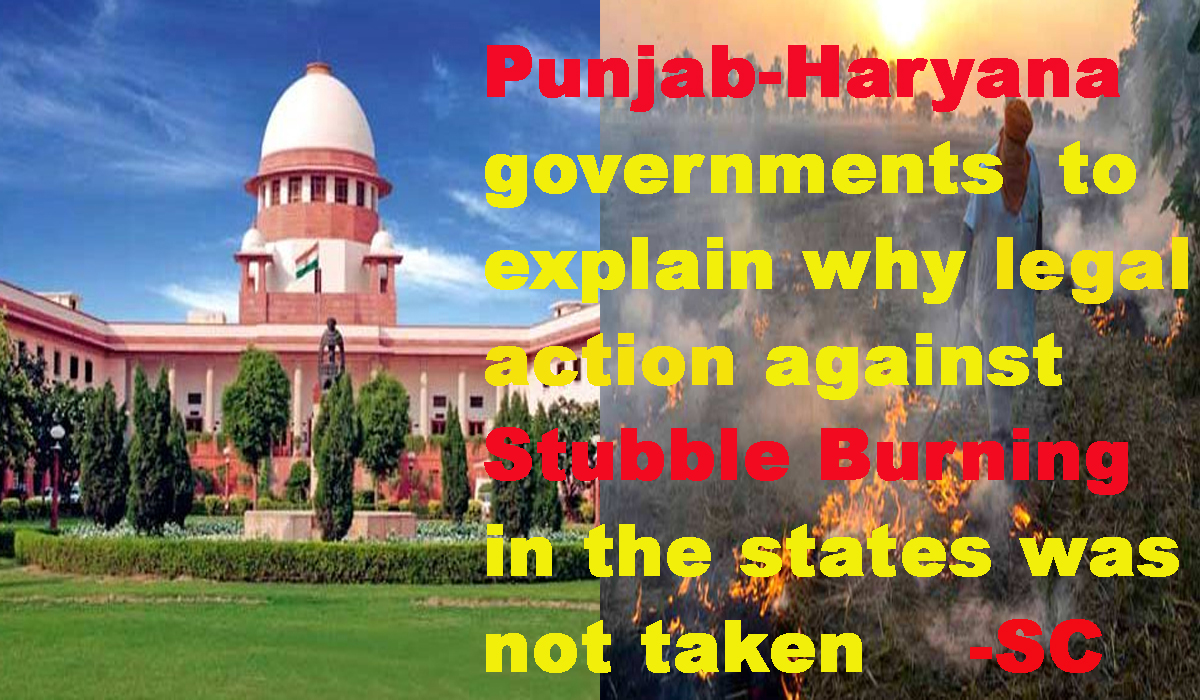
New Delhi: The Supreme Court on Wednesday summoned the Chief Secretaries of the Punjab and Haryana governments and asked them to explain why legal action against stubble burning in the states was not taken. A bench of Justices Abhay S Oka, Ahsanuddin Amanullah and Augustine George Masih slammed both states while noting that not a single prosecution had taken place against stubble-burning incidents.
“Why states are shying from prosecuting people for stubble burning and letting go of people with nominal fine,” asked the bench while expressing severe disapproval over the lack of proper legal action.
The top court while noting that the Haryana government was only imposing nominal fines against those engaging in stubble burning said, “You are just taking a nominal fine only. ISRO is telling you the location where the fire was taking place and you say that you do not find anything. 191 cases of breach and only a nominal fine taken. Absolute defiance of direction by Commission under Section 12 of the Commission of Air Quality Management in NCT Region Act 2021. Complete defiance by Haryana.”
While perusing the affidavit filed by the Chief Secretary of Haryana, the bench said, “This is not a political matter. If the Chief Secretary is acting at somebody’s behest, we will issue summons against them as well. Next Wednesday we are going to physically call the Chief Secretary and explain everything. Nothing has been done, the same is true with Punjab. The attitude is of complete defiance.”
The bench also pulled up Punjab government saying burning of paddy straw or stubble burning is going on and state don’t want to do anything under the Air Prevention Act 1981. “Air is getting polluted,” said the bench. Seeking presence of the Chief Secretary of Punjab government on Wednesday, the bench said, “The order passed by Commission for Air Quality Management is three years old. We direct Chief Secretary of Punjab to be physically present.”
It also pointed out that members of the Commission (CAQM) lacked adequate qualifications when it comes to dealing with air pollution. The apex court was also expressed displeasure over the number of officers who remained absent at a meeting of the CAQM’s enforcement committee.
It directed that action must be taken against such frequent absentees and also ordered the Commission to explain whether eminent experts are allowed to be part of committee meetings. The apex court is seized of a plea filed in 1985 on air pollution and the vexed issue of crop residue burning arose from it.
